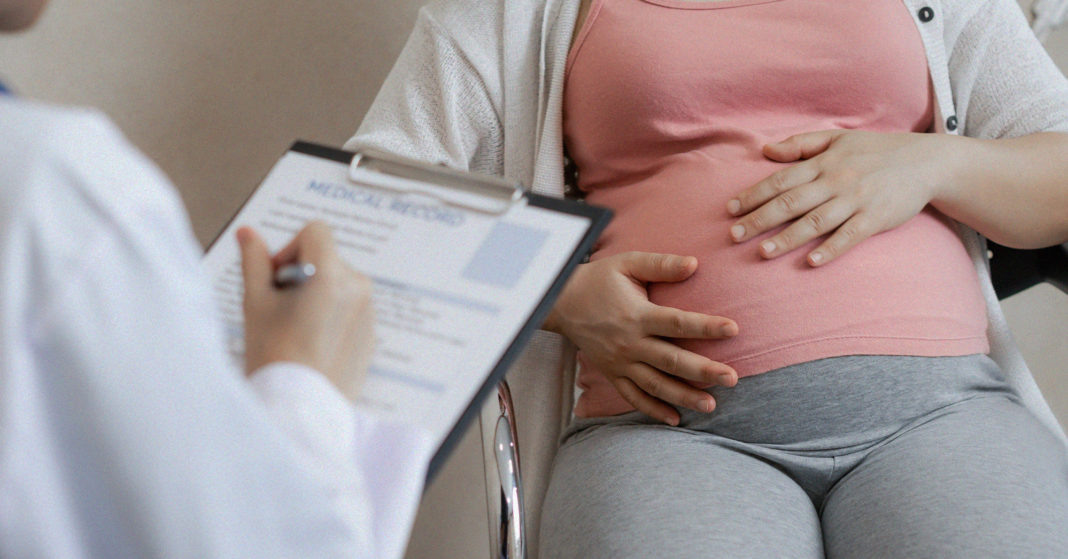The Food and Drug Administration has approved emergency use authorization for the Pfizer and Moderna vaccines to prevent COVID-19 disease for people aged 16 years and older, but what about those who are pregnant?
Here two experts shine a light on the personal choice of getting the COVID-19 vaccination when pregnant, or breastfeeding.
“COVID does confer a greater risk of serious illness in pregnant women, especially in women who have other health problems like diabetes or high blood pressure,” said Texas Association of Obstetricians and Gynecologists President, Dr. John Thoppil, based in Austin.
“Women of color are also higher risk in pregnancy. There is a greater risk of ICU admission, need for intubation and even death.” Dr. Thoppil added.
“The two vaccines approved in the US are a new technology using messenger RNA (mRNA). Unfortunately, pregnant women were not included in the initial trial. However, we know mRNA does not change DNA and animal studies show safety,” Dr. Thoppil said.
The CDC describes mRNA as “instructions for the cell on how to make a piece of the “spike protein” that is unique to SARS-CoV-2. Since only part of the protein is made, it does not do any harm to the person vaccinated but it is antigenic.”
“Based on this,” Dr. Thoppil says, “there is no reason to expect pregnant women to have any greater risk with vaccination than the general population.
“Therefore, the American College of Obstetricians and Gynecologists advises that the COVID vaccine be offered to all pregnant women. In our state we have deemed pregnancy as a criterion to be included in the 1B category to get access to vaccination, right after healthcare workers,” Dr John Thoppil added.
The issue regarding inclusion of women and children in research studies of novel vaccines or therapeutics is understandably a challenging one, says Dr. Kjersti Aagaard, professor of obstetrics and gynecology at Baylor College of Medicine.
“The decision to receive the COVID-19 vaccine should be made with your provider (physician or midwife for pregnant women) about not only the vaccines risks and benefits, but your risk of getting moderate or severe disease if you were to remain unvaccinated and get infected with the virus,” Dr. Aagaard said.
Dr. Aagaard referred to The Society for Maternal Fetal Medicine (SMFM) and the American College of Obstetrician Gynecologists (ACOG) guidance to aid in patients evaluating the benefits and potential risks. “There are several facts that are worth knowing when making this decision,” Aagaard says and provided these tips:
1. The risks of COVID-19 disease in pregnant women are greater than in non-pregnant women. Specifically, pregnant women are up to 5 times more likely to be hospitalized, three to four times more likely to need to be cared for in an ICU, and two to three times more likely to require life-saving measures (like a breathing tube or life support). In addition, while the data is not yet complete, there is at least a small increased risk of maternal death, stillbirth, and preterm birth with COVID-19 disease during pregnancy. Black and Latino women have an especially increased risk of severe disease and death from COVID-19.
2. The COVID-19 vaccine has not yet been thoroughly tested in pregnant women. Pregnant women were not allowed to take part in the clinical trials of the vaccine. However, a few people received the vaccine in the clinical trials and did become pregnant. Although these were small numbers, there were no reports of problems and monitoring continues.
3. The Pfizer and Moderna authorized vaccines are not live vaccines, meaning that you cannot become infected with the virus when you receive the vaccine. Although about 4 in 100 people had a fever with the first dose of the vaccine in the Pfizer trial, and 16 in 100 after the second dose in the trial, this did not mean that they became infected. These are anticipated responses to the vaccine, and clues that it is arming your immune system to fight the virus should you become infected. Pregnant and lactating women can take acetaminophen (Tylenol) to help with the fever and muscle aches that might come with receiving the vaccine, and it won’t cause harm or lessen the effectiveness of the vaccine.
At this time, because supplies of the vaccine are limited the CDC recommends certain groups who are at an increased risk for contracting the virus receive the vaccine first, this includes pregnant women who are part of a group recommended to receive COVID-19 vaccine, such as healthcare personnel, according to the CDC website.
The CDC says these are key considerations pregnant patients can discuss with their healthcare provider:
- The likelihood of exposure to SARS-CoV-2, the virus that causes COVID-19
- Risks of COVID-19 to them and potential risks to their fetuses
- What is known about the vaccine: how well it works to develop protection in the body, known side effects of the vaccine, and lack of data during pregnancy
The CDC says women who are trying to become pregnant do not need to avoid pregnancy after receiving a COVID-19 vaccine.







